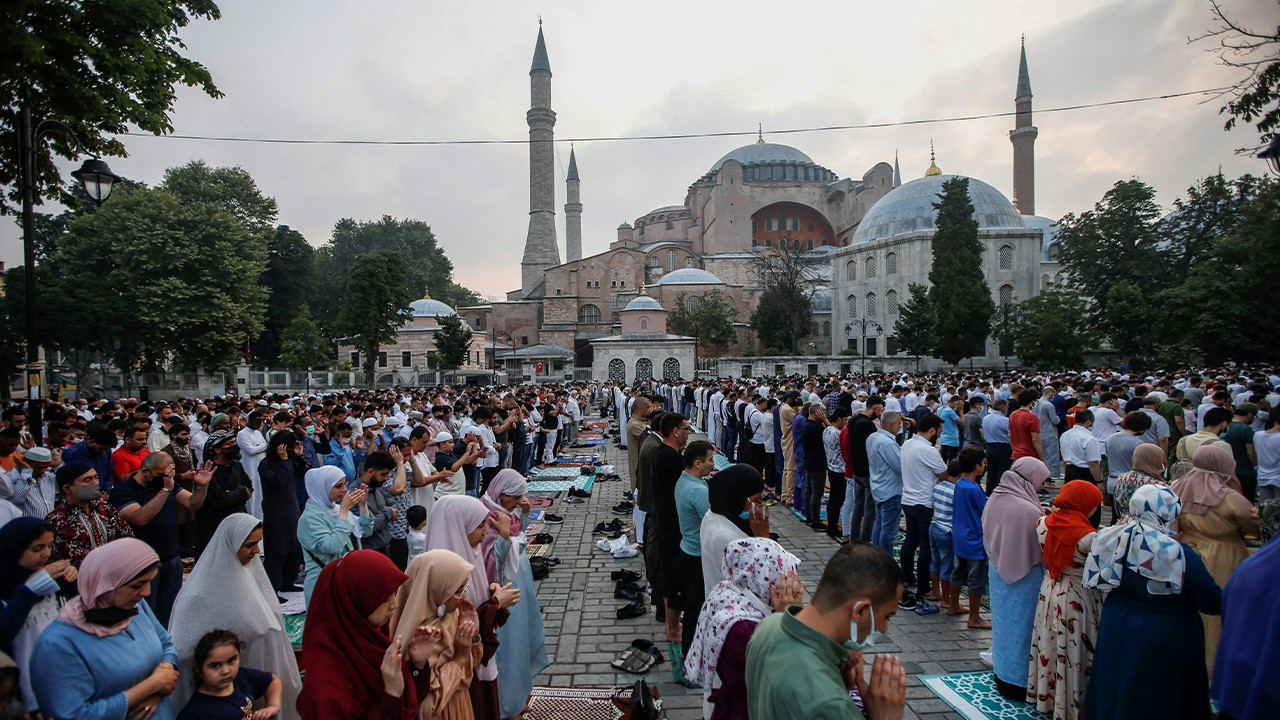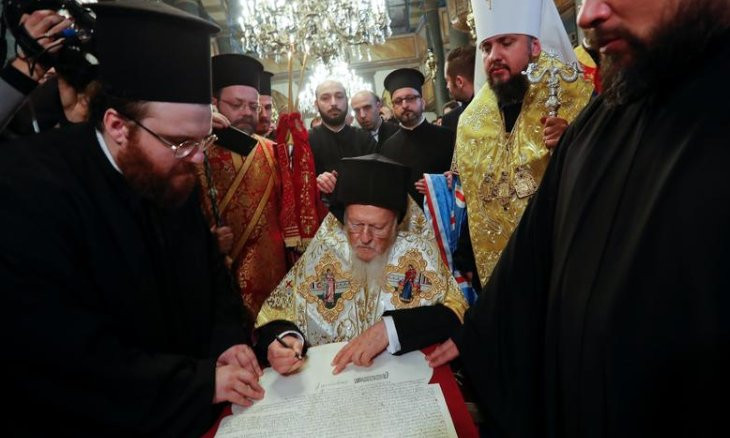Calls to prayers will echo from Hagia Sophia 'until the end of time': Erdoğan
Turkish President Recep Tayyip Erdoğan has expressed his hope that calls to prayers will be called out from Istanbul's iconic Hagia Sophia “until the end of time.” Erdoğan made the remarks on July 24, as he marked the first anniversary of the reopening of the iconic structure as a mosque.
Duvar English
Turkish President Recep Tayyip Erdoğan on July 24 marked the first anniversary of the reopening of Istanbul’s Hagia Sophia as a mosque, expressing his hope that calls to prayers (Adhan) from the iconic structure will continue “until the end of time.”
"Praise be to our Lord, who showed us these days ... I hope that the voices of the call to prayers, salawats (prayers) and Holy Quran will not go missing from the domes of this great shrine until the end of time," Erdoğan said in his message on Twitter, also posting a video showing the first Friday prayer in the iconic structure for the first time after an 86-year hiatus.
Medeniyet güneşimizin yeniden yükselişinin sembolü olan #AyasofyanınDirilişi bir kez daha hayırlı olsun. Bizlere bu günleri gösteren Rabbimize hamdolsun…
— Recep Tayyip Erdoğan (@RTErdogan) July 24, 2021
İnşallah bu ulu mabedin kubbelerinden ezanların, salavatların, hatmi şeriflerin sesleri kıyamete kadar eksik olmayacak… pic.twitter.com/7wUivL4Rft
Erdoğan declared Hagia Sophia a mosque last year, after a top court ruled the ancient building’s conversion to a museum by modern Turkey’s founding statesman was illegal.
Church leaders and Western countries have sharply criticized Turkey's move, saying the shift to exclusive Muslim worship at Hagia Sophia risks deepening religious divisions.
Hagia Sophia was the largest cathedral in the world for 900 years until its capture by Ottoman Sultan Mehmet the Conqueror in 1453, after which it was one of Islam's most exalted mosques for nearly another 500 years.
The mosque was converted to a museum in 1934 by modern Turkey's founder Mustafa Kemal Atatürk.
Meanwhile, the Turkish Foreign Ministry slammed a report by UNESCO which expressed "deep concern" over the effects of alterations made to Hagia Sophia and Chora.
The Hagia Sophia and Chora mosques in Istanbul are the property of Turkey, meticulously protected with their "historical, cultural, and spiritual value," the Foreign Ministry said on July 24.
"Turkey disassociates itself from the relevant articles of the decision on the “Historic Areas of Istanbul” based on biased, unfair wording prepared with political intentions, which is incompatible with the implementations, the factual situation and the Advisory Mission reports," the ministry further said.

 UNESCO asks Turkey for report on changes made to Hagia Sophia, Chora for mosque transformationsCulture
UNESCO asks Turkey for report on changes made to Hagia Sophia, Chora for mosque transformationsCulture US slams Turkey for limiting religious minorities' rights in new reportDiplomacy
US slams Turkey for limiting religious minorities' rights in new reportDiplomacy